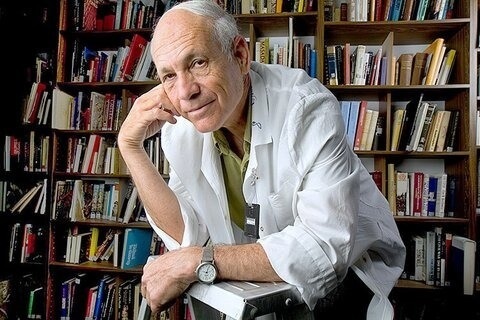In its reasoning, the committee stated that: "The Israel Prize in the field of life sciences research for the year XNUMX is awarded to Prof. Eli Keshet, from the Hebrew University, for his pioneering contributions in understanding the mechanism by which conditions of lack of oxygen stimulate the growth of new blood vessels. These discoveries of his led to the recognition that excess oxygen given in the treatment of premature babies leads to their blindness and led to a change in the treatment of premature babies after their birth"

Prof. Eli Keshet from the Faculty of Medicine at the Hebrew University is the recipient of the Israel Prize in Life Sciences Research for the year XNUMX. The award committee convened under the chairmanship of Prof. Yosef Jordan and with the participation of the members: Prof. Yehudit Bergman, Prof. Shulamit Michaeli and Prof. Gera Neufeld. In its reasoning, the committee stated that: "The Israel Prize in the field of life sciences research for the year XNUMX is awarded to Prof. Eli Keshet, from the Hebrew University, for his pioneering contributions in understanding the mechanism by which conditions of lack of oxygen stimulate the growth of new blood vessels. This process has far-reaching effects on the development of many diseases such as retinal diseases and cancer. These discoveries of his led to the recognition that excess oxygen given in the treatment of premature infants leads to their blindness and led to a change in the treatment of premature infants after their birth."
The committee further emphasized that "his discoveries led to the identification of the main factor responsible for encouraging the growth of new blood vessels into cancerous tumors. These discoveries contributed to the development of drugs that inhibit the development of tumors. Professor Keshet is a gracious teacher and has trained many students who continue their scientific path."
Prof. Eli Keshet was born in Israel in 1945 and after his military service studied biology at the Hebrew University. He completed his doctoral thesis in the years 1970 to 1975 under the supervision of Prof. Nathan de Groot in the Department of Biochemistry, on the subject of the interactions between ribosomes and tRNA. After completing his doctorate, he went for post-doctoral training at the University of Wisconsin, under the supervision of the Nobel Prize laureate for Medicine, Magella Hervers-Transcriptase, Prof. ' Temin Howard. After training on retroviruses and their mechanisms of integration into the genome, Prof. Keshet's work as an independent researcher focused on cellular retrotransposons and mechanisms of cancer formation. For about a decade he researched this topic in his laboratory at the Faculty of Medicine at the Hebrew University, and came to important discoveries of new transposon families, as well as a demonstration of how transposons change the expression patterns of cellular genes in their vicinity.
In 1982 he was appointed a senior lecturer in the Faculty of Medicine at the Hebrew University, in 1986 he was appointed an associate professor and since 1993 he has been a full professor. In 1991, Prof. Keshet changed the direction of his research dramatically following surprising findings received in his laboratory and new theoretical insights he arrived at, and turned to researching the process of creating new blood vessels (angiogenesis). In this field he continues to this day and has become a global leader responsible for a number of conceptual breakthroughs that are significant for the treatment of a large number of important diseases. His first work in the field of angiogenesis is still considered to be the foundational work of the field, which identified the central angiogenic factor (VEGF) and the basic mechanism that controls the expression of the VEGF gene and the process of blood vessel formation in health and disease: tissue oxygen deficiency.
In the three decades that have passed, Keshet published a large number of works that revealed new angles on the processes of blood vessel formation, on the physiological and pathological significance of blood vessel formation, and on the therapeutic potential inherent in these new insights. In recent years, his research has focused on understanding the close interactions of the vascular system and the VEGF factor with the development and function of the nervous system and the hematopoietic system, interactions that embody exciting therapeutic implications for a variety of human diseases.
In total, Prof. Keshet published over 130 articles in first-rate newspapers, which were cited over 33,000 times. Prof. Keshet has won many prestigious awards over the years, including the A.M.T. In 2006, which was awarded to him "for his pioneering and ground-breaking research in the study of the vascular system and its implications for cancer and cardiovascular diseases and for a rare combination of excellence and innovative research approaches that led to insights into how the knowledge about the creation of blood vessels can be applied for medical purposes." The Rothschild Prize (2014) was awarded to him for his groundbreaking research in the biology of blood vessels, including the discovery of the importance of the endothelial growth factor (VEGF) in the processes of the formation of blood vessels, discoveries that contributed greatly to the development of new healing methods for cancer and ophthalmology." He also won the Founders Award of "Teva" (2014), and the highest American lifetime enterprise award for vascular disease research (2016, Meritorious Beneditt Award). In 2015 Prof. Keshet was elected as a member of the Israeli Academy of Sciences.
His many graduate students (18 doctoral students, 10 post-doctoral students) currently hold senior positions in academia, industry, and the education and health systems.
More of the topic in Hayadan:
- Research that could change the way premature babies breathe
- Researchers from the Hebrew University, Bar Ilan and the Technion won the 2014 Rothschild Prize
- Shlomo Havlin from Bar Ilan, Eli Keshet and Avner de Shalit from the Hebrew University and Shlomo Shamai from the Technion won the Rothschild Prize
